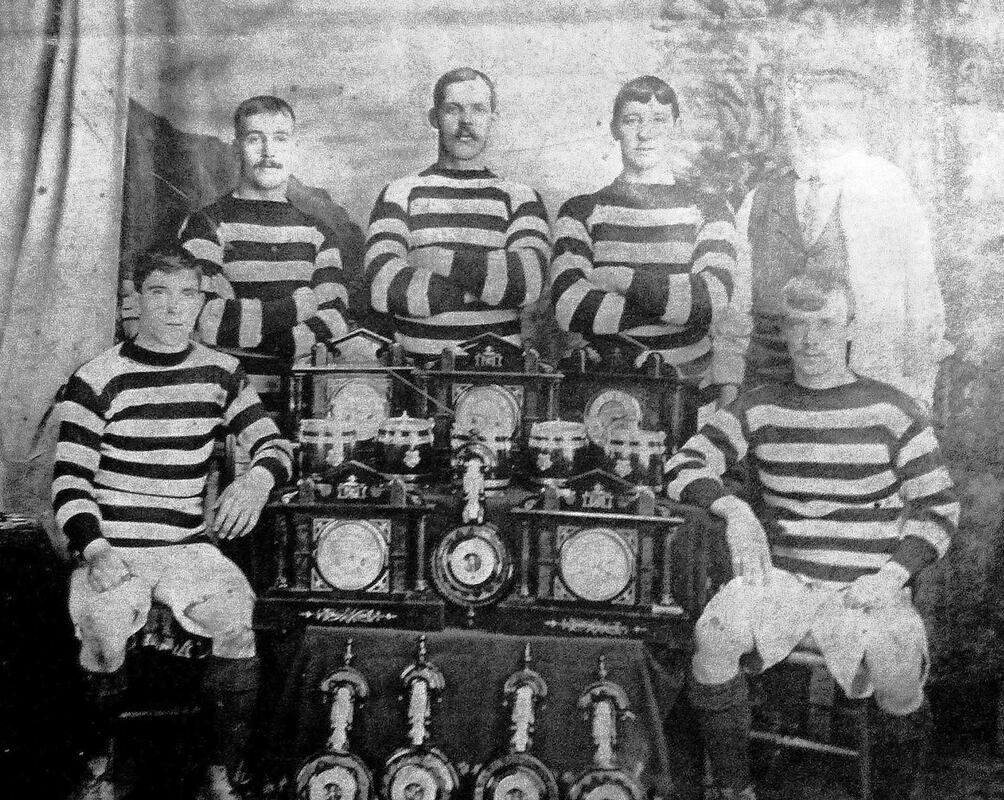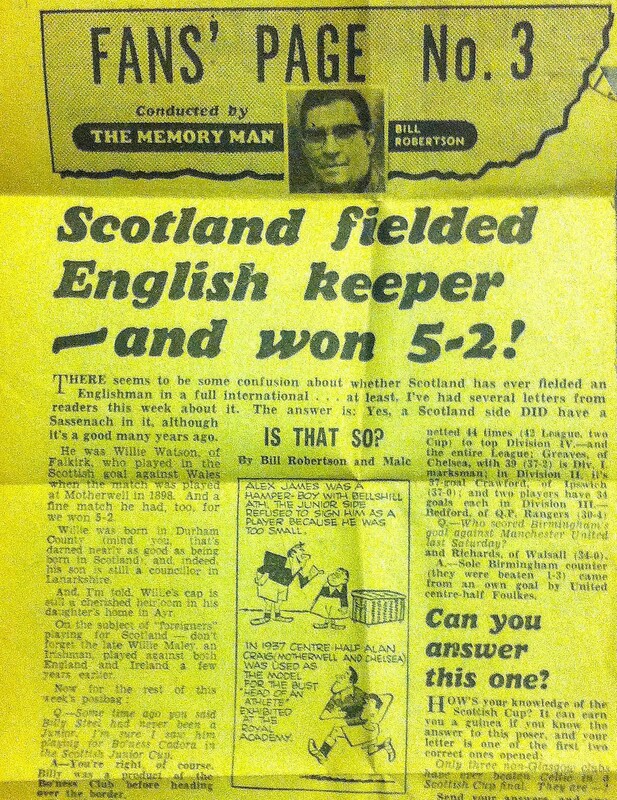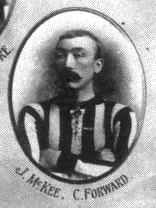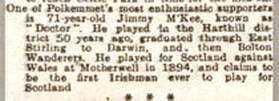At a time when the Scottish FA only selected players born north of the border, William Watson and James McKee helped Scotland to a 5-2 win over Wales. Watson was in goal, while McKee scored two of the goals.
What was not reported at the time, and has only recently come to light, was that they were not Scottish: Watson was born in South Shields, while McKee first saw the day in County Down. Both moved to Lanarkshire as boys and had effectively 'gone native'.
This is one of the discoveries I made while researching 'The Men who made Scotland', my new Who's Who of Scotland Internationalists.
James McKee, meanwhile, had been born in Moira, County Down in 1871. He was still an infant when his family moved to Shotts, and was brought up in the same area as Watson, also playing for Dykehead. He went on to a reasonably successful career as a goal-scoring centre forward, while never hitting the heights: he joined Hearts in 1895 but played just a couple of first team games (scoring in both), moved to Darwen in the English second division a year later, and came back to Scotland with East Stirlingshire in 1897.
Both players benefited from the SFA's policy in the late 19th century of putting out three distinct elevens for the home international series, with the players chosen to face Ireland and Wales regarded as 'second strings', often provincial players who were not really good enough to face England but deserving of recognition nonetheless. It was an era when players from Montrose, Alloa and East Stirlingshire could play for Scotland.
This reflected the standard of Watson and McKee, who had both won county caps for Stirlingshire, which put them in the reckoning for international honours. They were duly selected for an international trial at Cathkin in early March 1898 and although McKee had to withdraw through injury, when the selectors announced the team to face Wales, both were included.
The game drew a small crowd of around 3,500 to Fir Park, and they saw a comfortable victory for the home team. Scotland went four goals up, two from Gillespie and two from McKee, before the Welsh got one back just before half-time through the delightfully named Thomas Thomas. In the second half Gillespie completed his hat-trick and Morgan-Owen scored from a corner to make it 5-2.
Only two of the Scotland eleven would win a second cap that season (Thomson faced Ireland and Miller played against England) and most would never be selected again, including Watson, McKee and hat-trick hero Gillespie.
For Watson, indeed, this was almost his final football act. He gave up the game in the summer of 1898 and returned to Shotts, where he lived with his wife and a large family, employed as a hewer down the coal mine. It was heavy work which probably contributed to his early death of chronic bronchitis in 1929, aged 56.
Watson and McKee stand out as there were remarkably few exceptions to the requirement for Scotland players to be born in Scotland, apart from a few 'colonial' caps like Alex Bell (South Africa), Andrew Watson (Guyana) and Eadie Fraser and Joe Kennaway (both Canada).
In fact, in almost a hundred years between the formation of the Scottish FA in 1873 and the change to eligibility rules in 1971, there were only two other 'rest-of-UK' players. Willie Maley of Celtic, born in Newry, was capped twice in 1893 thanks to a Scottish family background. The other was Jimmy Wardhaugh of Hearts, who played twice for Scotland in the 1950s despite being born on the wrong side of the Berwickshire border.
This makes it all the more astonishing that two non-Scots played in the same match. There can be little doubt that neither Watson nor McKee would have been capped had the SFA selectors known they were 'foreign'.




 RSS Feed
RSS Feed